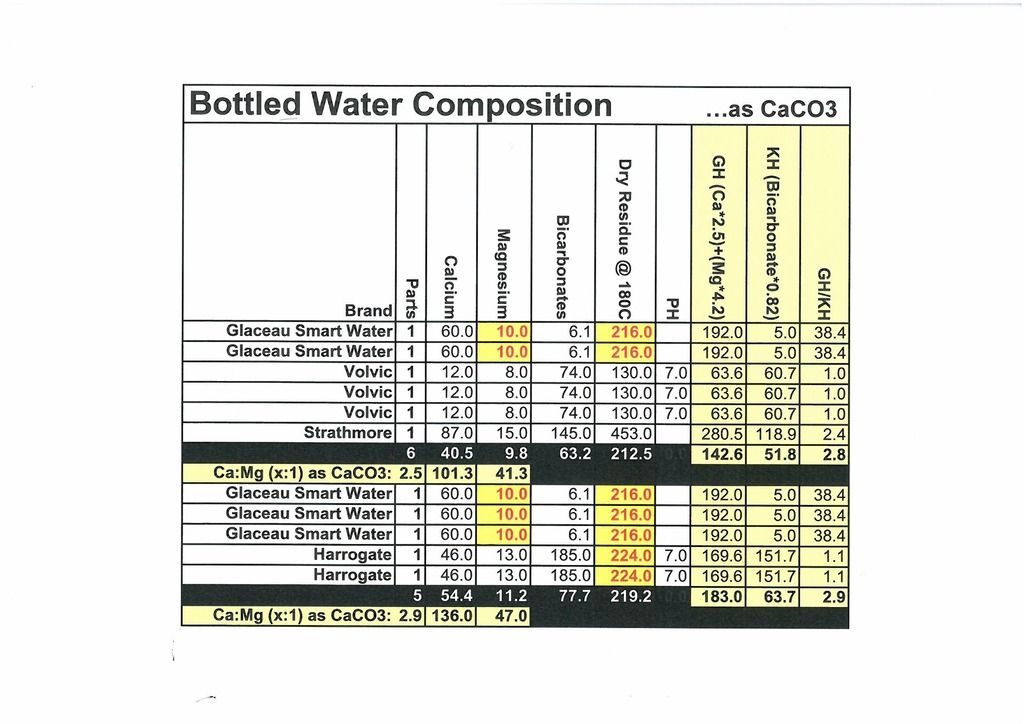So that suggestions on blends of readily available bottled water are more easily searchable, here's a new thread split away from the general/making water for brewed thread, as that now seems to be concentrating more on making/enhancing water for coffee.http://coffeeforums.co.uk/showthread.php?21305-Water-for-Coffee
For those that just want to pick up one bottle from the supermarket & brew away, then Volvic & Waitrose Essential are pretty good datums (of course, these can be blended with each other too).
Currently liking:
1 part Strathmore to 2 parts Glaceau to 3 parts Volvic.
2 parts Harrogate to 3 parts Glaceau.
A/B'd these 2 and really couldn't tell a difference. (Red figs highlighted in yellow are estimated).
![Water%20HarampGlac%20StrathampGlacampVol_zps2tvnwxju.jpg Water%20HarampGlac%20StrathampGlacampVol_zps2tvnwxju.jpg]()
[/url]
For those that just want to pick up one bottle from the supermarket & brew away, then Volvic & Waitrose Essential are pretty good datums (of course, these can be blended with each other too).
Currently liking:
1 part Strathmore to 2 parts Glaceau to 3 parts Volvic.
2 parts Harrogate to 3 parts Glaceau.
A/B'd these 2 and really couldn't tell a difference. (Red figs highlighted in yellow are estimated).







